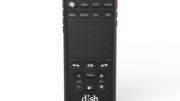Small business owners are squeezed from every direction. If you’re just trying to run an honest restaurant, tire store, whatever… you need to cut costs everywhere you can without ruining your customers’ experiences. These days especially, bringing people into your business is a huge challenge. You’re probably dealing with issues on every side from supply to lingering occupancy restrictions to angry customers. This is the time when you want every possible advantage… and yet it’s hard to put up the money you need.
So, you might be tempted to bring a DIRECTV receiver in from home, put up a dish, and voila, DIRECTV for your business. Except, it won’t work for long.
Why doesn’t this work?
There’s no technical limitation to this, it’s all policy. Well, there’s some limitation. If you have a Genie system at home, those client boxes won’t work unless they’re in the home. Just bringing them to work doesn’t do… anything.
DIRECTV doesn’t let you use residential receivers or residential service in a business, and that’s because they have to pay the content providers more for commercial accounts. Any time the TV is in a public area, they have to pay royalties. If they don’t, they could get sued.
And let me say, they take that very seriously. They literally have people roaming around from place to place looking for people who are doing this. Their “Fraud Squad” will find you, and they’ll come in guns blazing. I’m talking cease and desist orders, potential lawsuits, anything they can to make sure you stop doing what you’re doing. It would kill their long-term relationships with vendors and they’re not going to let that happen. They would gladly throw you and your small business under the bus rather than ruin a billion-dollar business relationship. When you look at it that way, can you blame them?
How will they know?
The first indication will come if you connect that receiver to the internet. It’s hard not to do it, since you get better performance and more programs when you do. Most receivers won’t nag you too much if you stay disconnected but if you accidentally try to order a pay-per-view movie or use on-demand programming, the receiver will store that information.
If the receiver is internet-connected, then DIRECTV knows its location. And if it’s not where it’s supposed to be, they’ll see that too. If two receivers on the same account are functioning from two different locations, it’s going to raise a red flag.
Even if you resolve to never connect your receiver to the internet and never try to order-pay-per-view, there’s a chance they’ll find out. You’ll find DIRECTV employees everywhere. DIRECTV encourages them to report receivers “in the field.” When they do, that receiver’s location is checked against a database. If it isn’t where it should be, if there isn’t a receiver that should be there, someone finds out. I’ve seen it happen.
Do it right, you’ll be glad you did
The good news is that there are DIRECTV packages for every budget for commercial customers. If you have a small public area, it’s not going to cost you anywhere near what you think it will, so it’s better to just get on the right side of this. The folks at Signal Connect, our business arm, are happy to explain all the advantages and disadvantages of this whole process to you, just give them a call at 888-233-7563! If it’s after business hours, fill in the form below and we’ll get back to you, usually within one business day.





